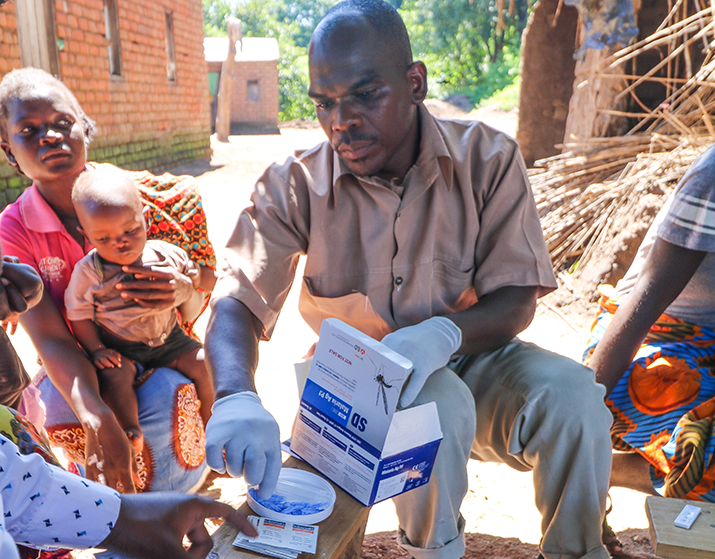Malawians were able to overcome possibly the deadliest tropical storm on record to hit Africa, Cyclone Idai. According to the Malawian government, 87,000 people were displaced from their homes, 677 were injured and 59 died. Families spent nights in schools, making room for classes in the day. Some lived in tents, sometimes shared with four to five people. Others built make-shift shelters from scavenged materials. The storm also destroyed the livelihood of many Malawians, ravaging crops and livestockーthe primary source of income and food for many families.
“I was due to deliver my baby when my village flooded. Given my condition, I was fortunate to escape with my children. Barely four hours later, I delivered a healthy baby girl. Unfortunately, I obviously was not able to help my husband, and we lost everything we owned, including cattle and other valuable household items.” ー Survivor, Mary Amos
But the cyclone left more than material damage in its wake: It also left large swamps, the perfect breeding ground for malaria-carrying mosquitoes. The U.S. President’s Malaria Initiative (PMI) launched a response in the two districts highly affected by Cyclone Idai, Zomba and Chikwawa
Malaria experts knew the dangers of breeding mosquitoes. PMI’s quick response to this natural disaster helped mitigate this risk of a malaria outbreak. Nets were among the many belongings washed away by the floods. PMI helped distribute new insecticide-treated nets to affected communities, providing protection for 216,500 people.
It wasn’t just homes and belongings that were destroyed. Medical warehouses and health centers were knocked out, and lines of people needed care. PMI funding helped district health teams set up mobile health clinics to increase access to essential health services, including malaria testing and treatment.
PMI’s timely distribution of nets and creation of mobile clinics helped keep additional malaria cases at bay during a devastating time. With these emergency measures in place, Malawians proved resilient and slowly rebuilt as a community.
Today, with the worst of the effects of the storm over, PMI is resuming its programs that support Malawi on their path to zero malaria. With PMI and other donors’ support, Malawi is preparing for a mass net distribution campaign, bringing in global supply chain standards, and strengthening its data systems. These actions, among others, will boost resilience to future disasters and further the country’s journey to self-reliance.


